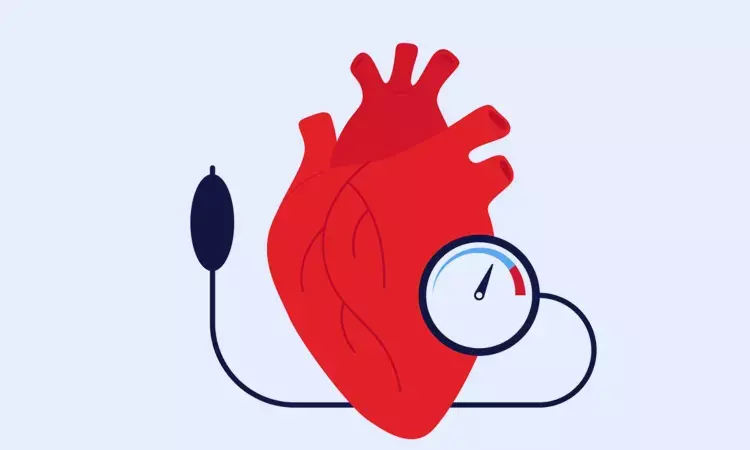- Home
- Medical news & Guidelines
- Anesthesiology
- Cardiology and CTVS
- Critical Care
- Dentistry
- Dermatology
- Diabetes and Endocrinology
- ENT
- Gastroenterology
- Medicine
- Nephrology
- Neurology
- Obstretics-Gynaecology
- Oncology
- Ophthalmology
- Orthopaedics
- Pediatrics-Neonatology
- Psychiatry
- Pulmonology
- Radiology
- Surgery
- Urology
- Laboratory Medicine
- Diet
- Nursing
- Paramedical
- Physiotherapy
- Health news
- Fact Check
- Bone Health Fact Check
- Brain Health Fact Check
- Cancer Related Fact Check
- Child Care Fact Check
- Dental and oral health fact check
- Diabetes and metabolic health fact check
- Diet and Nutrition Fact Check
- Eye and ENT Care Fact Check
- Fitness fact check
- Gut health fact check
- Heart health fact check
- Kidney health fact check
- Medical education fact check
- Men's health fact check
- Respiratory fact check
- Skin and hair care fact check
- Vaccine and Immunization fact check
- Women's health fact check
- AYUSH
- State News
- Andaman and Nicobar Islands
- Andhra Pradesh
- Arunachal Pradesh
- Assam
- Bihar
- Chandigarh
- Chattisgarh
- Dadra and Nagar Haveli
- Daman and Diu
- Delhi
- Goa
- Gujarat
- Haryana
- Himachal Pradesh
- Jammu & Kashmir
- Jharkhand
- Karnataka
- Kerala
- Ladakh
- Lakshadweep
- Madhya Pradesh
- Maharashtra
- Manipur
- Meghalaya
- Mizoram
- Nagaland
- Odisha
- Puducherry
- Punjab
- Rajasthan
- Sikkim
- Tamil Nadu
- Telangana
- Tripura
- Uttar Pradesh
- Uttrakhand
- West Bengal
- Medical Education
- Industry
Using PA pressure sensor with CardioMEMS beneficial for LVAD patients: INTELLECT 2-HF study

USA: A non-randomized study has suggested that hemodynamic-guided management of LVAD (left ventricular assist devices) patients with CardioMEMS (Abbott) is feasible and results in clinical and functional benefits.
Findings from the INTELLECT 2-HF study, published in Circulation: Heart Failure, showed that patients with left ventricular assist devices managed with the CardioMEMS system (Abbott) with a significant reduction in pulmonary artery diastolic pressure (PAD) showed considerable improvement in 6-minute walk distance (6MWD). Maintenance of PAD < 20 mmHg was linked with fewer hospitalizations for heart failure (HF).
The findings were also presented as an abstract at the ISHLT (International Society for Heart and Lung Transplantation) meeting in Denver, CO.
Previous studies have shown hemodynamic-guided management with a PAP (pulmonary artery pressure) sensor to reduce HF hospitalizations in chronic heart failure patients effectively. Vinay Thohan, Mission Heart HCA HealthCare, Asheville, NC, and colleagues aimed to determine the clinical utility and feasibility of the CardioMEMS HF system to manage patients supported with LVADs in a multi-centre prospective study.
CardioMEMS was first cleared by the US Food and Drug Administration (FDA) in 2014 and is indicated for use in patients with NYHA class III HF or NYHA class II heart failure or increased natriuretic peptides. The idea behind testing the system in an LVAD is that monitoring pulmonary artery pressures will ease the identification of patients who need drug or device tweaks and eventually improve clinical outcomes. However, data to inform this approach is limited.
The researchers followed 52 patients with HeartMate II or 49 with HeartMate 3 LVADs and CardioMEMS PA Sensors and measured quality of life (EQ-5D-5L scores), PAP, walk, distance and rate of heart failure hospitalization through 6 months. Overall, 38 patients were considered responders (R) based on a drop in PA diastolic pressure; the rest were deemed nonresponders (NR).
The authors reported the following findings:
- There were remarkable reductions in PAD from baseline to 6 months in responders (21.5 to 16.5 mmHg), compared to an increase in nonresponders (18.0 to 20.3), and there was a significant increase in 6MWD among responders (266 vs 322 meters) compared to no change in nonresponders.
- Patients who maintained PAD ≥ 20 versus PAD < 20 mmHg for more than half the time all over the study (averaging 23.3 versus 15.6 mmHg) had a statistically significant lower rate of heart failure hospitalization (12.0% vs 38.9%).
"Hemodynamic-guided management of LVAD patients with CardioMEMS may lead to functional and clinical benefits and is feasible," the researchers conclude. "Prospective assessment of ambulatory hemodynamic management warranted in LVAD patients."
Reference:
Thohan V, Abraham J, Burdorf A, Sulemanjee N, Jaski B, Guglin M, Pagani FD, Vidula H, Majure DT, Napier R, Heywood TJ, Cogswell R, Dirckx N, Farrar DJ, Drakos SG; INTELLECT 2-HF Investigators. Use of a Pulmonary Artery Pressure Sensor to Manage Patients With Left Ventricular Assist Devices. Circ Heart Fail. 2023 Apr 20. doi: 10.1161/CIRCHEARTFAILURE.122.009960. Epub ahead of print. PMID: 37079511.
Dr Kamal Kant Kohli-MBBS, DTCD- a chest specialist with more than 30 years of practice and a flair for writing clinical articles, Dr Kamal Kant Kohli joined Medical Dialogues as a Chief Editor of Medical News. Besides writing articles, as an editor, he proofreads and verifies all the medical content published on Medical Dialogues including those coming from journals, studies,medical conferences,guidelines etc. Email: drkohli@medicaldialogues.in. Contact no. 011-43720751


